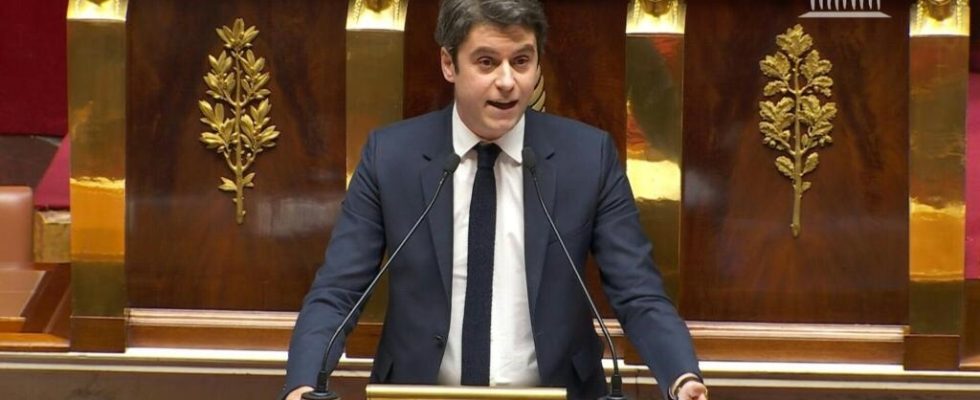This is the title chosen by Le Figaroafter the presentation on Tuesday, May 9 by the Minister of Public Accounts of a plan to “ track down the tax evasion of the ultra-rich and multinationals. […] After the trying, divisive and inevitably unpopular sequence of the pension reform, writes a columnist for the conservative newspaper, it’s a hot topic ” to answer “ to the exasperation of the middle classes who feel that others always get away with it or know how to evade controls “. But if Le Figaro believes that the government is right to toughen up its plan against tax evasion “, another columnist of the newspaper denounces in the same time “ state omnipresence in France, a country among the tax champions “, And “ the most taxed in the euro zone “, she regrets.
“ public-tax »
In any case, with this government plan, here is “ finally a measure that will not be tax-popular “, ironicallye Chained Duck. The satirical weekly which seems contradicted by another front page, that of Humanitywho tackles “ government tax hoax. […] Bercy is preparing drastic cuts in public budgets, in defiance of all social justicedenounces The Human. No way [dans ce plan] a reinstatement of wealth tax “, is indignant the newspaper.
Skepticism also reigns among their colleagues from Release. Because if the government announces a 25% increase in tax audits, and 100 million euros for additional intelligence resources, there will be no job creation, we read in Freed. “ The ads, laudable in principle, do not seem to measure up to the optimization strategies followed massively by the wealthiest “, estimates the left-wing newspaper, which underlines that in “ France the effective tax rate of the 370 wealthiest tax households is only 2.5% on average “.
housing crisis
The government is also expected on another subject : housing. “ A model to rebuild “, and a plan” who is waiting “, points out the Catholic daily The cross on the front page. While The world offers on its website to dive into “ the roots of a crisis that the government is slow to tackle “.
If the right newspaper Opinion worries about “ more standards ” and of “ the demagogic hunt » Airbnb-type short-term rentals, The world point out this discrepancy : “ Housing is in crisis, all elected officials share this observation and yet the file is absent from the government’s agenda », Tackles the evening daily. Because this Tuesday, May 9 was to be presented a first assessment of the housing component of the National Council for Refoundation, launched by the government last October. But to the surprise of industry players, the meeting was postponed sine die by the executive, reports The world.
However, this crisis cannot wait, believe the associations interviewed by the newspaper, who are calling for a “ State financial recommitment » : “ the public effort for housing has never been so low in relation to GDP “, regrets one of them. Sales of new homes have fallen by 25% in one year, the number of loans for the purchase of apartments or houses has fallen by 40% (due to inflation) alert The cross in its editorial. “ First item of household expenditure, will this subject become a national priority? ? asks the Catholic daily.
Housing, urban planning and climate change
The journal prolongs reflection wondering what big cities can learn from oases, with the example of the oasis of Tiznit, in southern Morocco. While Paris is expected to experience more and more heat waves, and the temperature could some days reach 50°C in the capital by 2080, major French cities are looking for ideas to adapt. And could be inspired by the microclimate created in the oases thanks to “ ingenious pipe networks which are used for ultra-local agriculture and palm irrigation which refresh the city.
A close relationship between the city and agriculture, also made possible by a “ collective management and egalitarian of water. The report is supplemented by interview with an architect which calls for inspiration from raw earth constructions, to return to natural and local materials to reduce the use of concrete, which requires a lot of energy and contributes to warming the temperature of cities in summer.
